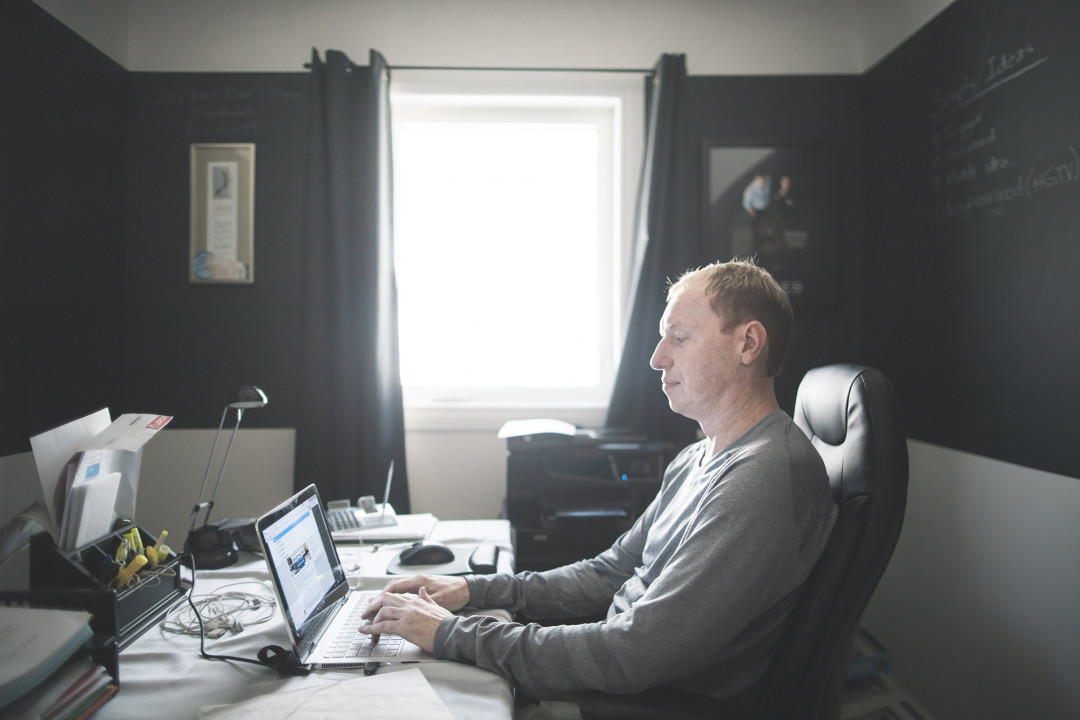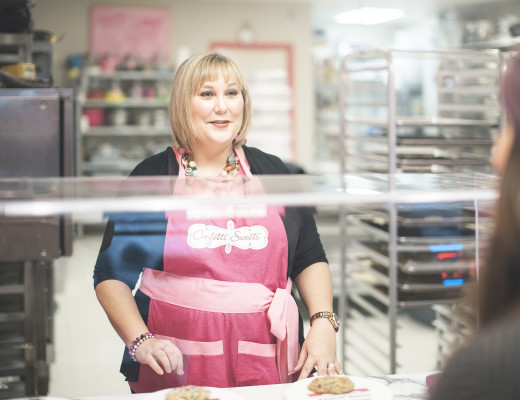There’s no denying that Greg Ball is a career chameleon –he is a Hollywood writer, a lawyer, and passionate storyteller. While wrapping up his law degree, he and his former writing partner developed a pitch for a television show based on their experiences as young, soon-to-be lawyers. The two decided to take their story to the Banff Television Festival, and were soon launched into the world of Hollywood and all that comes with it. After spending time in Ottawa, Toronto and Los Angeles, Greg returned to Edmonton with a refreshed appreciation for our community and overall quality of life (though he strongly believes our city is lacking in the valet parking department). We took some time to chat with Greg about his experiences in Hollywood, his advice for aspiring writers, and how he divides his time between law and storytelling.
Could you tell us a bit about yourself?
I am a writer, a storyteller and a lawyer who loves real estate and current events. I am obsessed with HGTV, the twenty-four hour news cycle, and currently, any white wine from the Marlborough region of New Zealand. I have been lucky enough to have my own one hour drama (The Associates) which aired on CTV many years ago. I also have lived in Los Angeles, and have written for shows including Wild Card, NYPD Blue, Bones, as well as pitched and written pilots to/for various networks. I’m currently living in Edmonton, and work for the ministry of Justice and Solicitor General as the Legal Issues Advisor to the Deputy Minister, Justice and Solicitor General. It is a fascinating and demanding job that touches on all aspects of our justice system in Alberta.
You lead a pretty interesting life —how would you best define yourself –as a writer, or a lawyer?
I have had an amazing life so far and I am very grateful for the opportunities and experiences I have had.
That is a hard question for me because my life is marked by phases. At times (like now), I make my living with my “lawyer hat” on. At other times, I have earned my living with my “writer hat” firmly in place. In some ways, I see being a writer and a lawyer as very similar in that every legal issue is a story in and of itself.
It is not until you get involved in the entertainment business that you realize what a miracle it is that any project sees the light of day because there are so many opportunities, at so many levels, for people to say ‘no’ and for things to go sideways along the way.
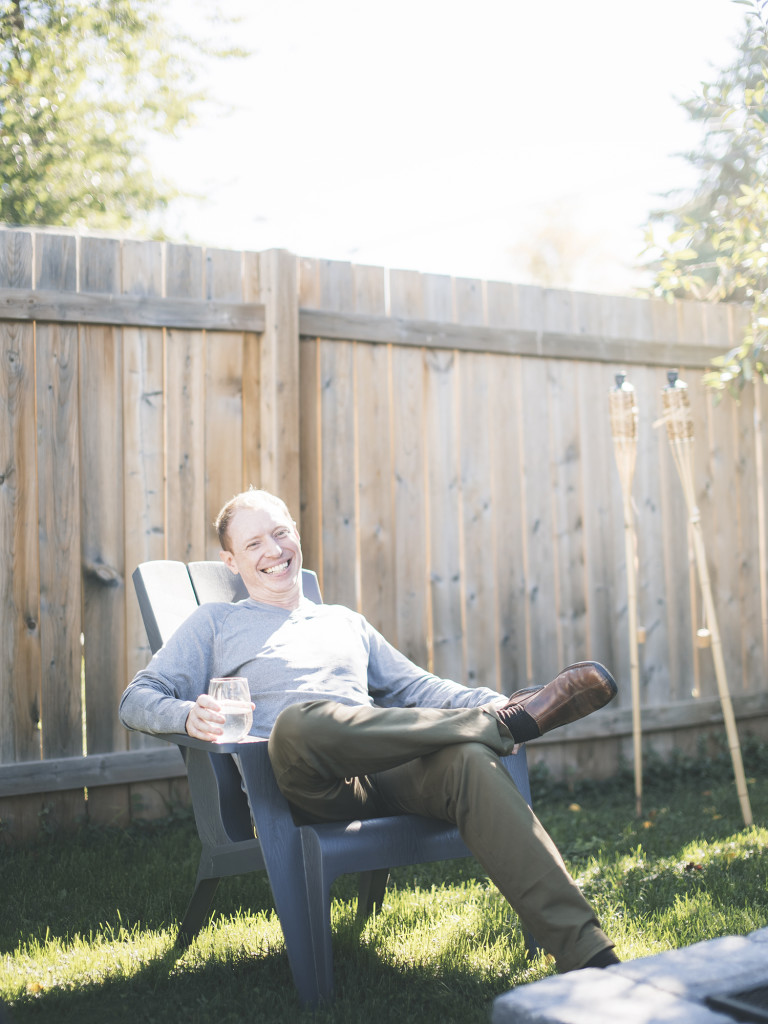
At what point in your life did you realize you were a pretty good writer and storyteller?
I have always liked to write, but “the moment” did not come until the third year of my undergrad degree at the University of Alberta. I was enrolled in a creative writing class and our assignment was to write a story and not only submit it, but “deliver it” to the class. I immediately had an internal panic at the thought of putting myself out there in front of this group of really talented writers. Eventually, reason took over and I went with my usual adage – “go hard or go home.”
There were no real parameters for the story we had to tell —it could be heartfelt, sad, funny, dramatic, or all of the above. I opted for funny and told a story about how, when I was in grade eight and writing a make-up math exam in the library, I managed to get a pussy-willow from an art project lodged in my inner ear. This of course resulted in a trip to the office, a call to my mom from the principal, and a trip to the doctor with all of the requisite humiliation one might imagine.
I remember standing in front of that class telling this story and thinking I was going to pass out. But as the words began to roll off my tongue, they gave way to smirks, then smiles, then chuckles and finally, full-on belly laughs. I knew I had hit the mark. However, it was when one woman in particular —whose writing I really respected— jumped up, out of her seat, and ran from the room in tears of laughter, declaring how badly she DIDN’T want to pee her pants… I think that is when I first knew
Many people dream about getting their foot into Hollywood. How did you do it?
One day I came up with the idea to write a television show about the life that my former writing partner and I were living as articling students and soon to be first year lawyers. No legal series to that point had really tackled this arena, so we thought that we had a chance.
We developed a pitch document for the show which we originally titled “Yonge and King” and enrolled in the Banff Television Festival. We were so ‘green’ that we did not realize that enrolling in the conference was just part of it. In order to make anything happen, you had to actually connect with other delegates and set up meetings well in advance. We did not realize this until a few weeks before the conference; when all of the big companies we hoped to meet with were already booked up. So in an act of desperation — at three in the morning— we crafted a zany email which we sent directly to the presidents of all of these big entertainment companies basically saying that we were two of the hardest working articling students in the country and, in addition to working full-time as lawyers, we also had this awesome legal series to pitch, and if they didn’t meet with us they were going to miss out.
The next morning the responses started rolling in and we could hardly believe our eyes. The head honchos of Paramount, Lions Gate, CTV, and Global all responded to us saying they would either rearrange their schedules to meet, or they would send company reps to meet with us in their place.
We were so broke we could only afford to attend one day at the conference, but we ended up with so many meetings that we took over a booth in the lounge at the Banff Springs Hotel and held a second day of pitch meetings there. Everyone who came to hear the pitch ordered a cocktail or three — so by the end of a ten hour day we had a very impressive bar tab. But it was all worth it, because some of the meetings we had at Banff resulted in us landing an agent, and officially selling the show, just a few short months later.
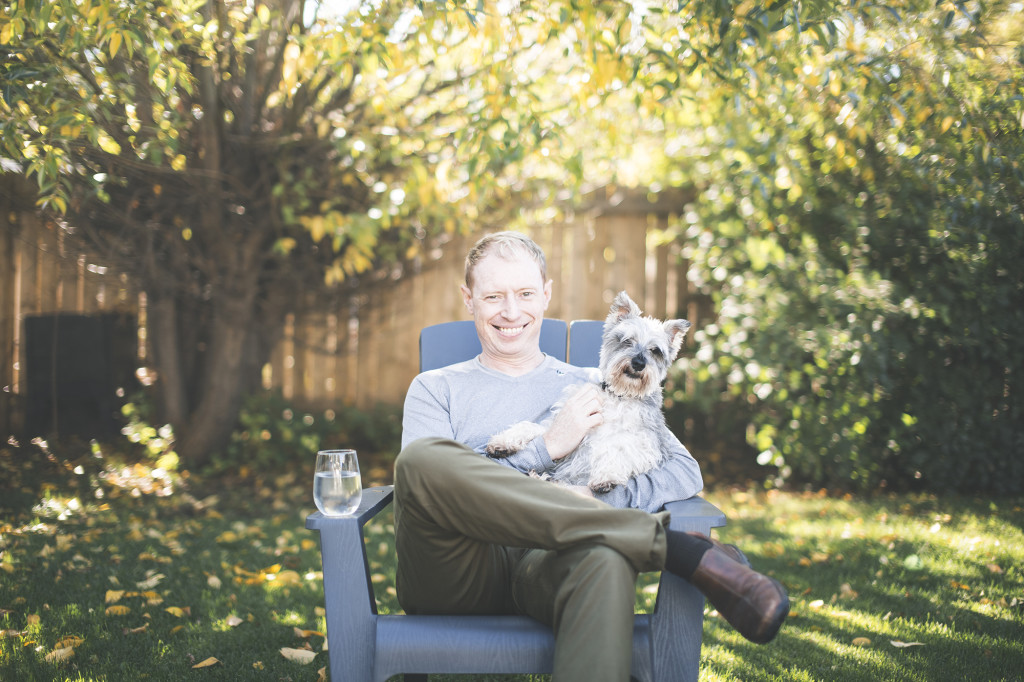
What was your big break?
Actually getting The Associates on the air with CTV as our network and Alliance Atlantis as our production company was the big break. Granted, this all took place in Toronto (Hollywood North), but actually getting the show to camera with the help of over two hundred cast and crew and having those episodes air was a huge feat.
It is not until you get involved in the entertainment business that you realize what a miracle it is that any project sees the light of day because there are so many opportunities, at so many levels, for people to say ‘no’ and for things to go sideways along the way.
What types of life lessons did Hollywood teach you?
First of all, everything you hear about Hollywood is true. It is a cut-throat, tough, but exciting place where bad behavior —in my experience— is often over-looked and sometimes even rewarded. It really is the ‘Wild West’ in some respects.
When you are there, the line between right and wrong for a lot of people quickly turns grey. Being in that environment, however, taught me to live and conduct myself according to my own moral and ethical code. Just because someone to my left was willing to go down into the gutter did not mean I had to follow.
It also taught me to believe in myself. When it comes to writing, and show ideas, everyone has an opinion. But if your name is going to be on the project, you have to follow your own instincts and do what your gut tells you to do, even if that means disagreeing with powerful people in the business.
What advice would you give to an aspiring writer?
I would have two pieces of advice. First –and this has been said many times before– but write what you know; especially if you are just trying to break into the writing business. The reason is this: you may have no track record as a writer, but if you are being authentic and writing about a subject matter you know intimately, then it is much harder for people to question you and push you aside. You may be new, but you are an expert when it comes to your subject matter. That is what saved us with The Associates. People tried to push us aside at every turn, but we pushed back and said “… not so fast. We have lived this. We know this. You need us.” And we were right.
The second piece of advice I would give is learn how to take a good note, but also learn to strike a balance between taking notes and trying to please everyone. You can’t please everyone, but that should not be your goal. Writing is art and art is very subjective. Have a point of view, a vision and stick to it.
I will NEVER forget this moment on The Associates. We were less than a month from the series going to camera, and a very powerful executive (who will remain nameless) called us into a room and said, “Do we really need law in this show? Can’t it just be a show about five good-looking, young people who hang out and sleep together and all that stuff?” At first I thought I was on Candid Camera; when I realized she was serious, I thought my head was going to pop off. Our response was an emphatic “no,” —it was conceived as a legal show, each episode had a legal case and it was going to remain a legal show. What made it different was that it was from the perspective of young lawyers; this was not some meandering, twenty-something-angst show, and we were not going to allow it to be turned into that.
So stand up tall and fight for what you write; it may lead to some rejection, but better to be rejected than to find yourself in business with an editor or producer who is trying to force your idea into something it is not. I recently pulled a pitch for a major network because after one particular conference call, I knew that the executive saw my project differently than I did. The idea died then and there, but I was totally Zen with it because I knew if I pursued it the end product would not be something I was happy with.
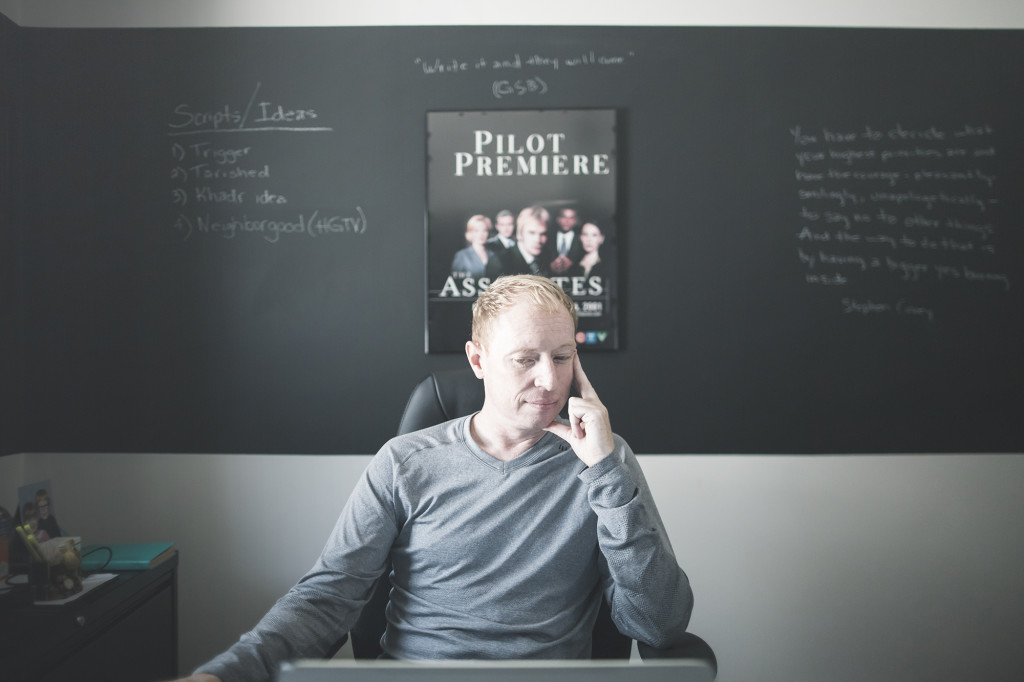
What was the most disappointing moment of your career? How did you pick yourself up from it?
When I was living in L.A., I lost my writing job, a development deal I was negotiating a major Hollywood production company, my writing partnership and my agent, all in the span of a few days. It was devastating —and what was worse is that it caught me off guard. I had gone from a top television show on a major network to what seemed like nothing in essentially a matter of hours.
I picked myself up from that by clearing my head and sitting down again to write. It was one of the hardest things I have ever done, but I locked myself in my apartment near the intersection of Fairfax and Third Street and spec’d an episode of Boston Legal. This means I wrote an episode of the show of my own accord in the hopes it would be good enough (right tone, voice of the characters etc.) to land me a new agent and / or manager, and hopefully a job on a new show. I worked on that script —entitled “Beating around the Bush”— harder than anything I had worked on before and it paid off. I landed a manager at The Cartel and an agent at Paradigm… a highly respected agency in Beverly Hills that reps A-list talent. From there, I sold a pilot to CTV entitled “Kat’s Eye” before the writers’ strike occurred.
What was the proudest moment of your career?
There is simply nothing like seeing words you have penned being acted out in front of you, or televised on the small screen. I loved being on set for that reason. Seeing my name on the credits of a 2 a.m.re-run of an episode I wrote still gives me chills. That makes me proud.
What inspires the storylines of your scripts?
I am inspired by everything around me from the people I meet, to conversations I hear, to cases that come across my desk, to newspaper or magazine headlines I read. I always find myself reading something or learning something new and saying to myself, “Is there a television show or a script idea in this?” Sometimes the smallest things spark an idea. This summer a friend and I were having dinner and through the course of that conversation we came up with a reality show idea that we are planning to pitch. You just never know when an idea will strike.
With everything that is going on in your life, what are you most passionate about?
Someone once said to me that I was very lucky because I had a number of interests. Some people struggle to find one thing to focus on, but I struggle to choose. I love writing, real estate and law and each day is often a juggling act between them all. If forced to choose, though, I am most passionate about writing. It is damn hard work and no one can say the process is fun, but the end result and that opportunity to connect with someone is worth it.
write what you know; especially if you are just trying to break into the writing business.
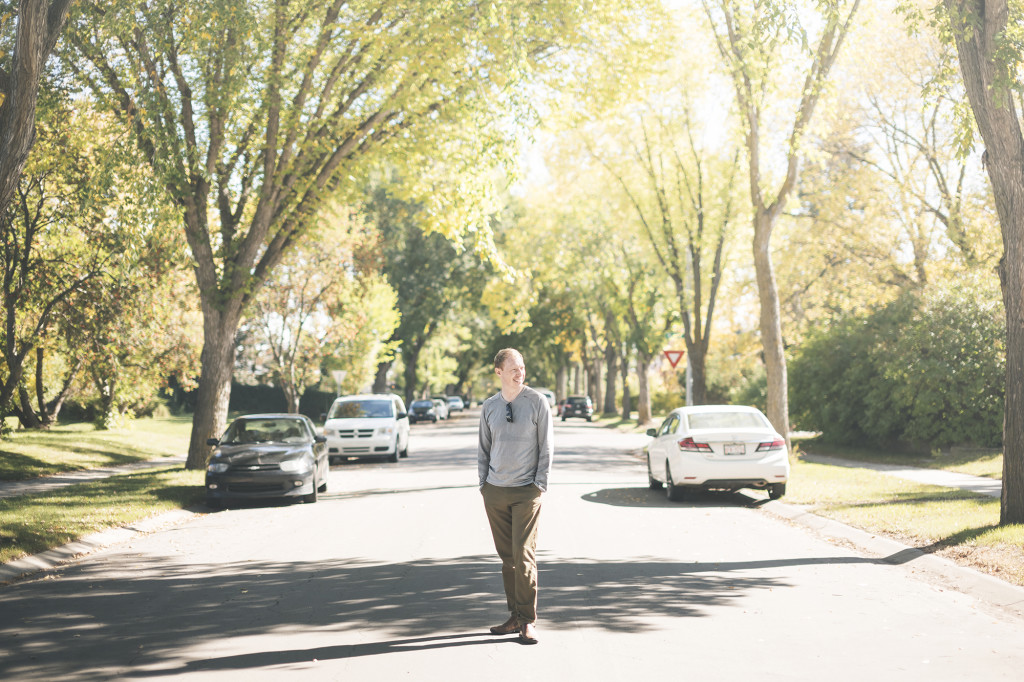
You’ve spent time living in California but you continue to call Edmonton home. What makes Edmonton home for you?
Edmonton is home because I have great friends and family here, but it is home because of much more than that. After having lived in Ottawa, Toronto and Los Angeles, I have really grown to appreciate Edmonton and the ridiculously high quality of life we enjoy here. It is a city I think that is just coming into its own. But it is really about the people. We have incredibly friendly, generous and innovative people everywhere you look who are eager to get out there and make something of themselves. When I think of Edmonton now, I think of its dynamic population, construction cranes downtown, fantastic restaurants, the gorgeous river valley and one of my favorite places —the off-leash dog park in Mill Creek Ravine.
How do you find balance in your life?
I don’t. And to pretend otherwise would be completely disingenuous. Balance is something I need to work on —big time— and I am. So when I figure that out I will get back to you… rain check? Lol….
Are there resources or an app that help you in your daily life, or help you stay organized or in check? What would you recommend to our readers?
I am a pretty basic guy when it comes to organization. I am hopeless with electronics and some days turning on my iPhone is a challenge. When I get overwhelmed, I go back to basics… and by basics I mean I make lists. I have even been accused of making lists of lists; but when things get crazy, out comes my yellow manila pad and I start writing things down in priority sequence. I think it is just the security of knowing everything is on paper, and will not be forgotten, that allows me the freedom to forget about the big picture and focus on the task at hand. Once I get into that mode, the list becomes my security blanket and I am able to become extraordinarily efficient.
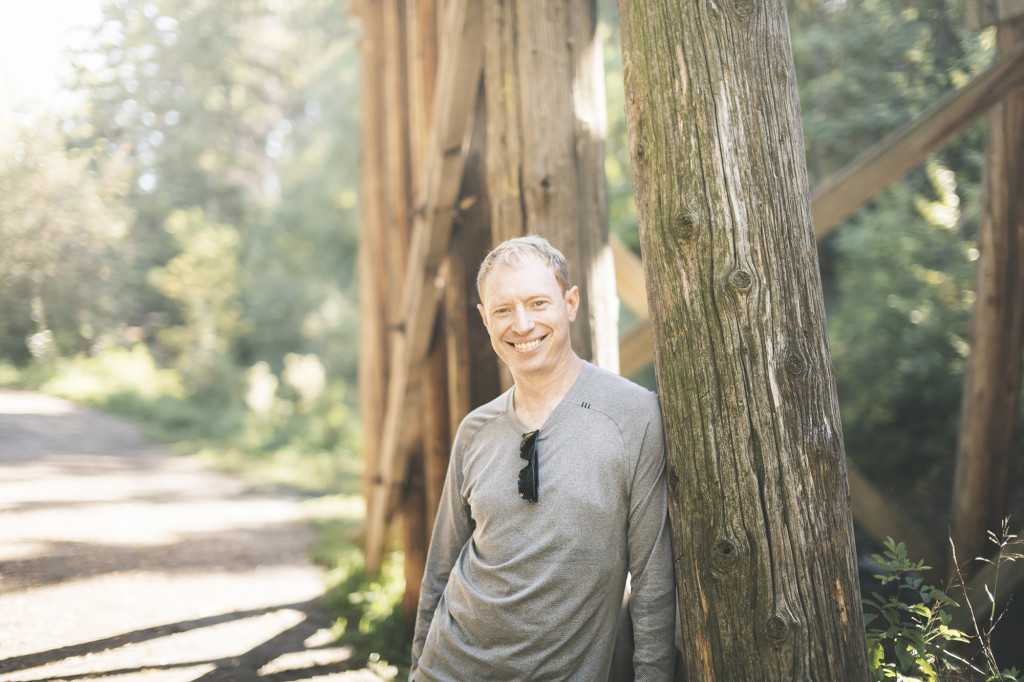
What is your favorite restaurant and / or coffee shop in town?
There are two places I often find myself in – Accent Lounge on 104th Street, North of Whyte, or the lounge at the Hotel MacDonald. When I’m at Accent, I usually order the Mornet with a martini or three. When I’m at the Mac, it’s usually a martini and bowl of their legendary mushroom soup —that combination never fails to brighten my day.
What does an ideal first 60 minutes of your day look like?
I’m glad this question included the word “ideal.” This past summer I was fortunate enough to participate in the Executive Team retreat for the Ministry of Justice and Solicitor General. During those two days, one of the facilitators of the retreat put us through an exercise that I found fascinating. We arrived the first morning and he asked us “how we were showing up” that day. By that he meant he wanted us to share, with our colleagues, what our mornings were like and what emotional head space we were arriving to work in. The honesty was staggering —one man had spent a peaceful morning with his horses, a female member of the team had spent time giving her son a pep-talk for a job interview, another man had a spat with his wife and was in a rotten mood… It was so interesting because by the time we got around the circle, we had all learned something about each other and we all felt more connected.
I have never been big on mornings and usually have to ease into them, but I do not have the luxury of that currently. So, the ideal first 60 minutes of my day right now would have me up and out the door with enough time to chat with some of my colleagues before we dive into the heavy lifting of the day. Feeling connected to the people I work with is important to me and knowing something about where they are at and what is going on in their lives makes a big difference.
So stand up tall and fight for what you write; it may lead to some rejection, but better to be rejected than to find yourself in business with an editor or producer who is trying to force your idea into something it is not.
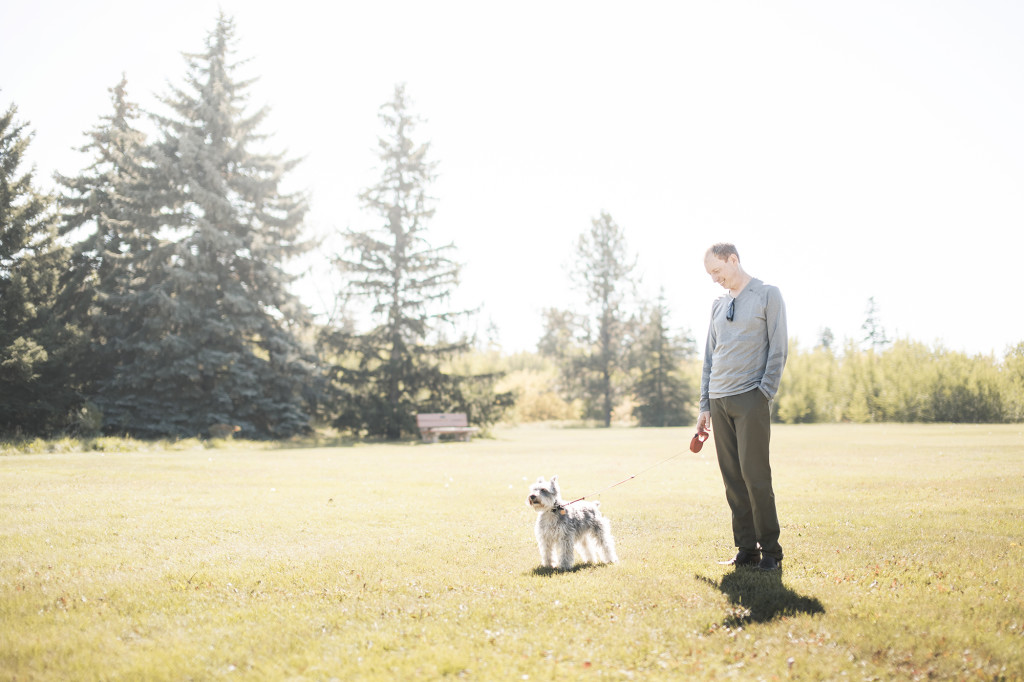
Is there a book that inspired and influenced you that you would recommend to our readers?
Give and Take: A Revolutionary Approach to Success by Adam Grant. I read this at the suggestion of my former boss and it totally reframed how I viewed the path to “success” (insofar as what that term means to me) and the conduct necessary to achieve it. Mr. Grant is an organizational psychologist and researcher at the Wharton School of Business and his book is premised on the idea that people can generally be divided into three categories according to the nature of their interactions with others: they are either “takers”, “matchers” or “givers”. Takers are the people who are always trying to get as much as they can, while matchers focus on balancing their generosity with what they are getting in return. Givers, however, are those rare creatures who are completely dedicated to helping out without concern for what is in it for them.
Through his research, Mr. Grant challenges the commonly held belief that nice people always finish last. Instead, he makes the case that givers are better positioned for great success than the most hardcore takers among us. I found the book both helpful and hopeful because he itemizes the qualities of givers that are often characterized by our society as signs of weakness and reframes them as great strengths.
Writing is art and art is very subjective. Have a point of view, a vision and stick to it.
What is something you have seen abroad that you would love to bring to Edmonton?
Valet parking —seriously— and I don’t just mean at Manulife Place. In L.A. there is valet parking everywhere. Starbucks, restaurants… I even went to a laundromat that had a valet. And where in the world do people need valet parking more, than a city that hits minus 40 every January? Those light-weights in L.A. don’t need valets, but we do. Desperately. So let’s get on that, ok?
What are you currently excited about? Are there any projects in the works? What’s next for Greg?
I am excited about a lot of things including my job that challenges me hourly never-mind daily. On the writing front, I have a few things on the horizon. I am rewriting a script I previously wrote called Trigger for a U.S. producer, I am also writing the script of a show I previously pitched to the U.S. market called Tarnished, and I am working on a reality show idea with a friend. When all of that is done, however, I have decided I need to try my hand at writing a comedy because my life is just like that. The bottom line is I have a lot on my plate and could really use an extra day in the week — so if someone could make that happen it would be greatly appreciated.

